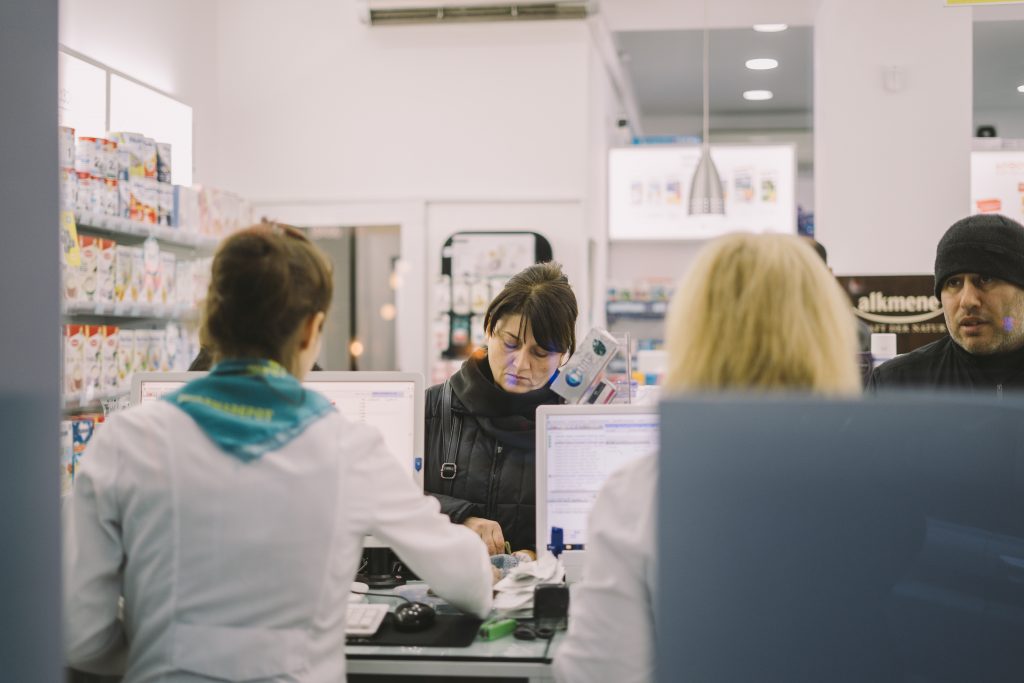This week, reproductive rights have been thrust back into the spotlight following news that a woman was refused the morning after pill by a pharmacist because it went against the practitioner’s “personal beliefs”.
Siani, 41, had paid £30 for the emergency contraception online before going to collect it from her nearest LloydsPharmacy, located in a Sainsbury’s in Brighton.
She called the pharmacy from her car to check that her order was ready. When she went inside the shop to collect it the female pharmacist told Siani that she would not dispense the pill because it went against her moral values.
Siani was instructed to come back the next day, or to head to the next nearest pharmacy – 10 miles away. As it was a Sunday, most pharmacies were closed. The Morning After Pill also lessens in effectiveness the more time that is left between unprotected sex and taking it, leaving Siani in a difficult predicament – and not in full control of her reproductive health.
“I’m a mum in my 40s, I have very little shame left, but there will be girls having the same experience who have nothing like the resources I do. You expect that sort of nonsense in America, but not here,” Siani told the Metro.
‘The Impact Cannot Be Overstated’
Response to the article has been one of disbelief and staunch criticism.
The British Pregnancy Advisory Service (BPAS) are among the organisations condemning the move – and calling for the morning after pill to be available to buy on the shelf rather than over the counter.

Image credit: Unsplash
“The majority of pharmacists provide kind, swift, and non-judgmental advice and support to women seeking emergency contraception. However, there are sadly notable exceptions – and the impact that an individual’s ethical objections can have on women seeking support cannot be overstated,” a BPAS spokesperson told RightsInfo.
“Obstacles to emergency contraception can deny a woman a second chance to avoid a pregnancy which she has not planned and which can place her health and wellbeing at risk. At BPAS, we regularly see women seeking abortion care who were unable to access emergency contraception when they needed to.”
‘We’re Not Talking About Having A Cold’
But surely incidences such as this are rare?
Not so. A quick scan of Twitter found several women reporting similar experiences.
The first time it happened I hadn’t really thought it could possibly be a thing that could happen, so I was absolutely stumped.
Cassie, a woman who was refused the morning after pill on a number of occasions.
Cassie, whose real name has been changed to maintain her anonymity, says that she’d encountered similar refusals when trying to access the morning after pill over the counter “several times”.
“When I was at university in Kent, I ended up going to three different pharmacies in the same town, experiencing a mixture of people saying they wouldn’t give it to me because of their personal beliefs and that there simply wasn’t a pharmacist on to prescribe it,” she tells Rights Info.

Image credit: Pharmacy/ Unsplash
“Most recently, a couple of years ago in Bedford, it was a Sunday and very few places were actually open. It was so strange, they were so matter-of-fact about it, they just said, ‘Yeah, no, sorry, the pharmacist won’t prescribe that because of religious beliefs.’
“The first time it happened I hadn’t really thought it could possibly be a thing that could happen, so I was absolutely stumped.
“We’re not talking about having a cold, [being pregnant] could have a massive and profound impact on your life. It doesn’t impact on the pharmacy or anyone in there that day. For them to be able to do that and have no obligation, and not pass you on to anywhere else, I find that atrocious.”
A former Boots pharmacist on social media, Nick Gilbert, weighed in, giving his account of a Catholic colleague who although was “willing to work on Sundays” refused to dispense the morning after pill on religious grounds.
Pharmacists’ Personal Views Versus Everyone Else’s
One of the most frequent responses to the article, however, was asking if and how the practice of denying contraception based on personal beliefs could be legal.
The General Pharmaceutical Council’s (GPhC) guidelines state that the religion, personal values or beliefs of pharmacy professionals may influence “day-to-day practice, particularly whether they feel able to provide certain services”.
This includes contraception, fertility medicines, hormonal therapies, mental health and well-being, substance misuse and sexual health.
However, the guidelines also advise pharmacists to “respect cultural differences” and make sure every person is treated fairly whatever their personal views.
It also states that pharmacists should “recognise their own values and beliefs but not impose them on other people” and that they should “take responsibility for ensuring that person-centred care is not compromised because of personal values and beliefs”.
Protecting Our Human Right To Healthcare
In a statement, LloydsPharmacy said that it was investigating the incident to “better understand” what happened to Siani.
A spokesperson said that they “adhere to the GPhC guidelines which allow pharmacists to refuse to dispense medication that goes against their personal beliefs if there is adequate alternative care available for the patient.
“As part of our own guidance, we encourage our pharmacists to use their professional judgement, but they must always put the patient first. In this case, the pharmacist was a locum pharmacist, not a full time employee. However, we will be communicating to our colleagues to remind them of this guidance.

Image credit: Pill packet/ Unsplash
“If a pharmacist refuses to dispense a particular product, they should contact the local NHS Patient Advisory Team so that an alternate pharmacy can be found as a matter of urgency. On this occasion we contacted the customer with details of another local pharmacy where the product would be made available.”
These guidelines, many have pointed out, appear at odds with our individual human rights to healthcare. This is not specifically protected under domestic law in the UK.
The Human Rights Act 1998 obliges all public authorities, including NHS organisations, to respect the human rights contained within the European Convention on Human Rights.
Most pharmacies are privately owned, but as they do dispense NHS prescriptions, they are legally obliged to ensure customers do not face discrimination when trying to access healthcare they need.
Removing Barriers To Access
One of the easiest ways to get around the stigma of emergency contraception, the personal beliefs of some pharmacists, and barriers to accessing emergency contraception, BPAS says, is to make it available to buy straight from the shelf and bypass the counter altogether.
“The majority of women in this country use condoms or pills, and emergency contraception will always be an important back-up method,” BPAS said.
“To ensure all women can access this medication when needed, emergency contraception should be reclassified so that women can purchase it directly from the shelf, as they can in many other countries, without requiring the intervention of a pharmacist.”
Cassie adds: “When you go in and say you want the morning after pill, there is so much stigma that comes with it, they are patronising when they talk to you, then you have to pay a lot to get it.
“Whenever I’ve tried to get it I’ve found it to be quite condescending. We definitely need to look at how this is accessed and it shouldn’t be beholden to the religious views of one person.”







